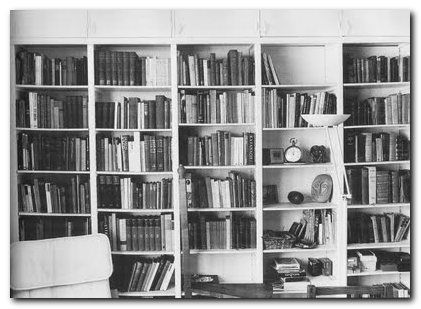biography, guidance notes, and literary criticism
This Critical Guide to Samuel Beckett comes from a new series by Routledge which offers comprehensive but single-volume introductions to major English writers. In this case it’s a writer who was Irish, who wrote in English, then in French, then translated his own work back into English. It is a guide aimed at students of literature, but it’s also accessible to general readers who might like to deepen their understanding.
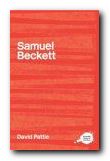 The approach taken could not be more straightforward. Part one is a potted biography of Beckett, placing his life and work in a socio-historical context. Thus we get his early influences and his move from Trinity College Dublin to life in Paris working as secretary to James Joyce. We are also nursed through an introduction to the literary Modernist movement of which he formed an important part. Part two provides a synoptic view of Beckett’s stories, novels, plays, and poetry.
The approach taken could not be more straightforward. Part one is a potted biography of Beckett, placing his life and work in a socio-historical context. Thus we get his early influences and his move from Trinity College Dublin to life in Paris working as secretary to James Joyce. We are also nursed through an introduction to the literary Modernist movement of which he formed an important part. Part two provides a synoptic view of Beckett’s stories, novels, plays, and poetry.
The works are described in outline, and then their main themes illuminated. This is followed by pointers towards the main critical writings on these texts and issues. Beckett is not an easy writer to categorise. We think of him mainly as a dramatist – but he is equally influential (if not so highly regarded) as a writer of novellas and short stories.
Part three deals with criticism of Beckett’s work. This is presented in chronological order – from the work of the 1960s which sought to explain what seemed at the time an odd view of the world, to critics of the present day.
The book ends with a commendably thorough bibliography which covers biography, criticism in books and articles, plus pointers towards specialist journals.
This is an excellent starting point for students who are new to Beckett’s work – and a refresher course for those who would like to keep up to date with criticism. These guides have proved to be very popular. Strongly recommended.
© Roy Johnson 2000
David Pattie, The Complete Critical Guide to Samuel Beckett, London: Routledge, 2000, pp.220, ISBN: 041520254X
More on Samuel Beckett
Twentieth century literature
More on biography
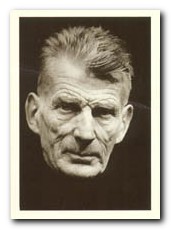 C=criticism
C=criticism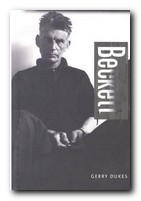 Samuel Beckett: an illustrated life
Samuel Beckett: an illustrated life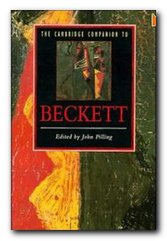 The Cambridge Companion to Beckett
The Cambridge Companion to Beckett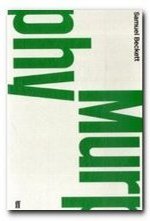 Murphy is Samuel Beckett’s first novel, published in 1938. It was written in English, unlike many of his later works which were written in French then translated into English. It is the story of a work-shy man, wandering adrift in London, who believes that human desire can never be satisfied. He seeks to withdraw from life into a state of what he sees as catatonic bliss. Murphy’s fiancée Celia tries to humanise him by finding him a job working as a nurse in a mental institution, but he sees the insanity of the patients an attractive alternative to his conscious existence from which he cannot escape.
Murphy is Samuel Beckett’s first novel, published in 1938. It was written in English, unlike many of his later works which were written in French then translated into English. It is the story of a work-shy man, wandering adrift in London, who believes that human desire can never be satisfied. He seeks to withdraw from life into a state of what he sees as catatonic bliss. Murphy’s fiancée Celia tries to humanise him by finding him a job working as a nurse in a mental institution, but he sees the insanity of the patients an attractive alternative to his conscious existence from which he cannot escape.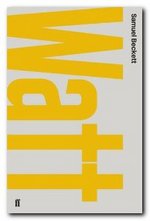 Watt Beckett’s second novel was written during World War Two (1942-1944), while he was hiding from the Gestapo in Provence in southern France. It was first published in English in 1953 and tells a semi-incoherent story of Watt’s journey to become the manservant of a Mr Knott, and his struggle to understand the house they live in. It’s written with some of Beckett’s characteristically deadpan humour and quasi-philosophic jokes. He also uses deliberately unidiomatic language and pokes fun at contemporary figures and institutions. Watt has previously appeared in editions that are littered with major and minor errors. The new Faber edition offers for the first time a corrected text based on a scholarly appraisal of the manuscripts and their textual history.
Watt Beckett’s second novel was written during World War Two (1942-1944), while he was hiding from the Gestapo in Provence in southern France. It was first published in English in 1953 and tells a semi-incoherent story of Watt’s journey to become the manservant of a Mr Knott, and his struggle to understand the house they live in. It’s written with some of Beckett’s characteristically deadpan humour and quasi-philosophic jokes. He also uses deliberately unidiomatic language and pokes fun at contemporary figures and institutions. Watt has previously appeared in editions that are littered with major and minor errors. The new Faber edition offers for the first time a corrected text based on a scholarly appraisal of the manuscripts and their textual history.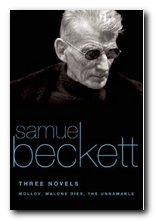 The Trilogy This is the famous trilogy that is generally regarded as the pinnacle of Beckett’s work as an experimental novelist. He was pushing the developments of modernism, existentialism, and absurdism as far as they would go. The three novels follow the bleak logic of Beckett’s move away from movement and life, towards stasis and death. Molloy (1951) is set in an indeterminate place and comprises the inner monologues of Molloy and a private detective called Moran. Both live in a state of semi-absurdity and seem almost to merge into the same person as they lose bodily mobility and end up using crutches. Malone Dies (1951) is the story of an old man who is confined to bed in a hospital or an asylum (he is not sure which). All notions of conventional plot or logical sequences of events are abandoned. The narrative is merely Malone’s obsession with the trivia of his existence, stripped of all physical effects except an exercise book and a pencil that is getting shorter and shorter. The Unnameable (1953) takes these experiments in prose fiction one stage further. It concerns a person with no name who lives under an old tarpaulin sheet. He is not even sure if he is dead or alive – and neither are we.
The Trilogy This is the famous trilogy that is generally regarded as the pinnacle of Beckett’s work as an experimental novelist. He was pushing the developments of modernism, existentialism, and absurdism as far as they would go. The three novels follow the bleak logic of Beckett’s move away from movement and life, towards stasis and death. Molloy (1951) is set in an indeterminate place and comprises the inner monologues of Molloy and a private detective called Moran. Both live in a state of semi-absurdity and seem almost to merge into the same person as they lose bodily mobility and end up using crutches. Malone Dies (1951) is the story of an old man who is confined to bed in a hospital or an asylum (he is not sure which). All notions of conventional plot or logical sequences of events are abandoned. The narrative is merely Malone’s obsession with the trivia of his existence, stripped of all physical effects except an exercise book and a pencil that is getting shorter and shorter. The Unnameable (1953) takes these experiments in prose fiction one stage further. It concerns a person with no name who lives under an old tarpaulin sheet. He is not even sure if he is dead or alive – and neither are we.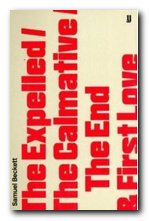 The Expelled This collection of four stories or nouvelles represents work which dates from 1945, though they were all published much later, in French and then in English. Full contents: The Expelled, The Calmative, The End, and First Love. All the stories make use of a first-person narrator, and exploit its potential for expressing the frailties of human memory, the inability to distinguish the past from the present, and even a profound doubt concerning the purpose of life itself. The stories document the human condition of an unstoppable progress towards death.
The Expelled This collection of four stories or nouvelles represents work which dates from 1945, though they were all published much later, in French and then in English. Full contents: The Expelled, The Calmative, The End, and First Love. All the stories make use of a first-person narrator, and exploit its potential for expressing the frailties of human memory, the inability to distinguish the past from the present, and even a profound doubt concerning the purpose of life itself. The stories document the human condition of an unstoppable progress towards death.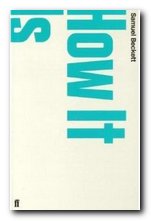 How It Is Published in French in 1961, and in English in 1964, this presents a novel in three parts, written in short paragraphs, which tell of a narrator lying in the dark, in the mud, repeating his life as he hears it uttered – or remembered – by another voice. Told from within, from the dark, the story is tirelessly and intimately explicit about the feelings that pervade his world, but fragmentary and vague about all else therein or beyond. The novel counts for many readers as Beckett’s greatest accomplishment in the prose narrative form. It is also his most challenging work, both stylistically and for the radical pessimism of its vision, which continues the themes of reduced circumstance, of another life before the present, and the self-appraising search for an essential self.
How It Is Published in French in 1961, and in English in 1964, this presents a novel in three parts, written in short paragraphs, which tell of a narrator lying in the dark, in the mud, repeating his life as he hears it uttered – or remembered – by another voice. Told from within, from the dark, the story is tirelessly and intimately explicit about the feelings that pervade his world, but fragmentary and vague about all else therein or beyond. The novel counts for many readers as Beckett’s greatest accomplishment in the prose narrative form. It is also his most challenging work, both stylistically and for the radical pessimism of its vision, which continues the themes of reduced circumstance, of another life before the present, and the self-appraising search for an essential self. Company These four last prose fictions span the final decade of Beckett’s life. In the title sytory a solitary listener lying in darkness calls up images from a past life. Ill Seen Ill Said is a meditation on an old woman living out her final days in an isolated cottage, watched over by a dozen mysterious sentinels. In Worstward Ho, a breathless speaker unravels the sense of life, acting out the repeated injunction to ‘Try again. Fail again. Fail better.’ Stirrings Still was published in the Guardian a few months before Beckett’s death in 1989. It is his last prose work and testament. The Faber edition also includes several short prose texts (Heard in the Dark I & II, One Evening, The Way, Ceiling) which represent works in progress or fragments composed around the same time as his final writing.
Company These four last prose fictions span the final decade of Beckett’s life. In the title sytory a solitary listener lying in darkness calls up images from a past life. Ill Seen Ill Said is a meditation on an old woman living out her final days in an isolated cottage, watched over by a dozen mysterious sentinels. In Worstward Ho, a breathless speaker unravels the sense of life, acting out the repeated injunction to ‘Try again. Fail again. Fail better.’ Stirrings Still was published in the Guardian a few months before Beckett’s death in 1989. It is his last prose work and testament. The Faber edition also includes several short prose texts (Heard in the Dark I & II, One Evening, The Way, Ceiling) which represent works in progress or fragments composed around the same time as his final writing.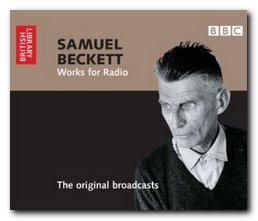 Works for Radio
Works for Radio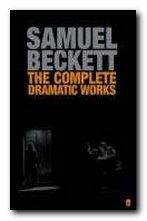 Complete Dramatic Works This one-volume compendium contains all of Beckett’s dramatic texts written between 1955 and 1984. It includes both the major dramatic works and the shorter and more compressed texts he created for the stage and for radio. Full contents: Waiting for Godot, Endgame, Happy Days, All That Fall, Acts Without Words, Krapp’s Last Tape, Roughs for the Theatre, Embers, Roughs for the Radio, Words and Music, Cascando, Play, Film, The Old Tune, Come and Go, Eh Joe, Breath, Not I, That Time, Footfalls, Ghost Trio,…but the clouds…, A Piece of Monologue, Rockaby, Ohio Impromptu, Quad, Catastrophe, Nacht und Traume, What Where.
Complete Dramatic Works This one-volume compendium contains all of Beckett’s dramatic texts written between 1955 and 1984. It includes both the major dramatic works and the shorter and more compressed texts he created for the stage and for radio. Full contents: Waiting for Godot, Endgame, Happy Days, All That Fall, Acts Without Words, Krapp’s Last Tape, Roughs for the Theatre, Embers, Roughs for the Radio, Words and Music, Cascando, Play, Film, The Old Tune, Come and Go, Eh Joe, Breath, Not I, That Time, Footfalls, Ghost Trio,…but the clouds…, A Piece of Monologue, Rockaby, Ohio Impromptu, Quad, Catastrophe, Nacht und Traume, What Where. Samuel Beckett: an illustrated life gives a short account of Beckett’s little-known private life in a book which is packed with rare photographs and shots of his stage productions. The life is quite surprising: a priviledged upbringing, with talented academic prospects which he abandonded for a bohemian life. Fighting with the Maquis during the war. Little artistic success, but lots of relationships with women – and then the big breakthrough with Waiting for Godot. This is a stunning little book.
Samuel Beckett: an illustrated life gives a short account of Beckett’s little-known private life in a book which is packed with rare photographs and shots of his stage productions. The life is quite surprising: a priviledged upbringing, with talented academic prospects which he abandonded for a bohemian life. Fighting with the Maquis during the war. Little artistic success, but lots of relationships with women – and then the big breakthrough with Waiting for Godot. This is a stunning little book. 